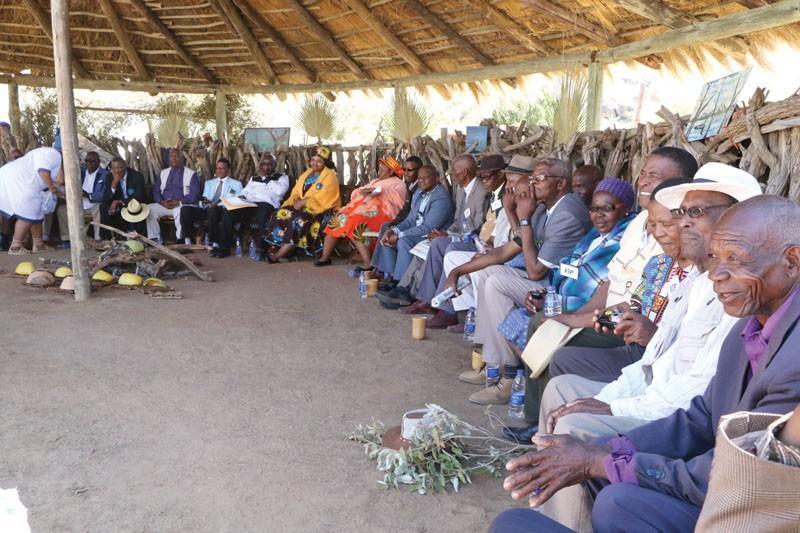Africa-Press – Botswana. Kang residents have appealed to government to relinquish control over state-owned media.
They made this request during a consultative kgotla meeting addressed by Taskforce on Media Legislative Review in Kang recently.
The residents voiced their dissatisfaction with the current arrangement where the Botswana Television, press operated under government control.
Such arrangement, they said stifled press freedom and compromised impartiality.
They said an independent media was crucial for transparency, accountability and strengthening of democratic governance and ideals.
They said there was need for unbiased reporting that reflected realities and voices of all citizens, rather than advancing state interests.
The residents further emphasised the importance of shifting oversight responsibilities to the Media Complaints Committee, a move they believed would foster impartiality, credibility and accountability.
Even though Kgosi Basadi Seipone concurred with residents’ sentiments that it was time for state media to be given the opportunity to operate independently, she advised that there was need to be vigilant and guard against challenges that could arise from such a transformation.
She further highlighted the need for flexibility in media recruitment adding that while she acknowledged the importance of formal qualifications, a room should be made for talented individuals, especially those in remote areas, who may not hold formal degrees but possessed the storytelling skills vital for grassroots journalism.
She further stressed the importance of journalists’ accreditation, noting that establishing clear professional standards was essential as the country moved toward a more open and democratic media environment.
Kgosi Seipone further expressed concern over the lack of private radio station coverage in the Kgalagadi District, despite the village’s strategic location.
She decried that the persistent challenge of poor network connectivity left residents underserved in terms of reliable access to information and communication.
Kgosi Seipone also appealed to government and stakeholders to consider the establishment of community radio stations, saying such initiatives would not only enhance communication, but would also help promote and preserve local dialects across the district.
She said community radio stations would not harm Batswana in any way, but would uplift and improve ‘our languages’ adding that there was a notable success of similar efforts in neighboring countries such as South Africa and Namibia.
She said integrating community-based broadcasting solutions would contribute positively to building a new and prosperous Botswana, where citizens were equally informed and empowered regardless of location.
For his part, Taskforce on Media Legislative Review member, Mr Thomas Nkhoma said in a move aimed at transforming Botswana’s media landscape, government appointed the taskforce to assess and reform existing media laws.
Mr Nkhoma, who is also Media Institute of Southern Africa Botswana chairperson, said the team was expected to develop a draft legislative framework that reflected the evolving media environment and aligned with democratic principles.
He said the team engaged with key stakeholders, including members of the community to gather views on the future of media operations in the country.
“We are reaching out to communities to hear their opinions on whether state media should continue under government control and if not, to explore alternative models of governance,” he said.
Consultations, he said also sought public input on mechanisms for media accountability, including how to address complaints about poor or unethical reporting.
Mr Nkhoma stressed the importance of community involvement in shaping these processes to ensure fairness and transparency.
“A critical aspect of the discussions centres around the criteria for who should be recognised as a journalist and how such individuals can be properly identified and accredited,” he said.
Mr Nkhoma reiterated government’s commitment to a free and fair press, affirming that the state supported the idea of the media functioning as a self-regulating institution.
He encouraged the residents to play an active role in shaping community radio stations platforms on how they should operate.
“Community radio has the potential to create employment opportunities and empower local voices,” he said. “However, there need for clear guidelines to ensure their effectiveness and sustainability,” he said.
the criteria for who should be recognised as a journalist, and how such individuals can be properly identified and accredited,” he said.
Mr. Nkhoma reiterated government’s commitment to a free and fair press, affirming that the state supported the idea of the media functioning as a self-regulating institution. He encouraged local residents to play an active role in shaping community radio stations platforms on how they should operate.
“Community radio has the potential to create employment opportunities and empower local voices,” he said.
For More News And Analysis About Botswana Follow Africa-Press






